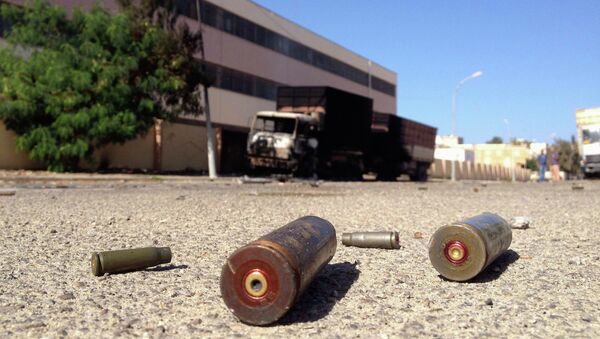MOSCOW, November 5 (RIA Novosti) — New evidence has been found indicating that Libyan militia groups used antipersonnel landmines during the armed conflict at Tripoli Airport, the Human Rights Watch (HRW) said in a report Wednesday.
"Credible evidence has emerged showing that one or more militia groups have used antipersonnel landmines during the armed conflict involving a Zintan alliance and the Libya Dawn alliance at Tripoli Airport in July and August 2014," the report stated.
On August 24, Tripoli airport was attacked and seized by an Islamist militia group from the northwestern city of Misrata. The militia group is said to be affiliated with the Libya Dawn alliance. The pro-government Zintan alliance had controlled the airport from the end of 2011, during the uprising that ended in the killing of former leader Muammar Gaddafi, until the recent seizure by the Libya Dawn forces.
According to HRW, anti-government forces and civilians gained access to massive weapons depots containing hundreds of thousands of landmines following the 2011 Arab Spring uprising.
In Tunisia and Egypt the Arab Spring uprisings overthrew repressive regimes, but in Libya it has led to civil war and international military intervention. Since the Libyan uprising there has been very little success by local authorities, assisted by the United Nations, to collect and destroy mines, and to clear minefields.
HRW has urged Libya to join the 1997 Mine Ban Treaty (AKA The Ottawa Treaty), which bans antipersonnel mines and considers them a violation of customary international law, even for countries which are not parties to the treaty. On November 3, Libya agreed to sign a non-binding UN General Assembly resolution to support the treaty but said that it was not in a position to join the treaty at the time.


